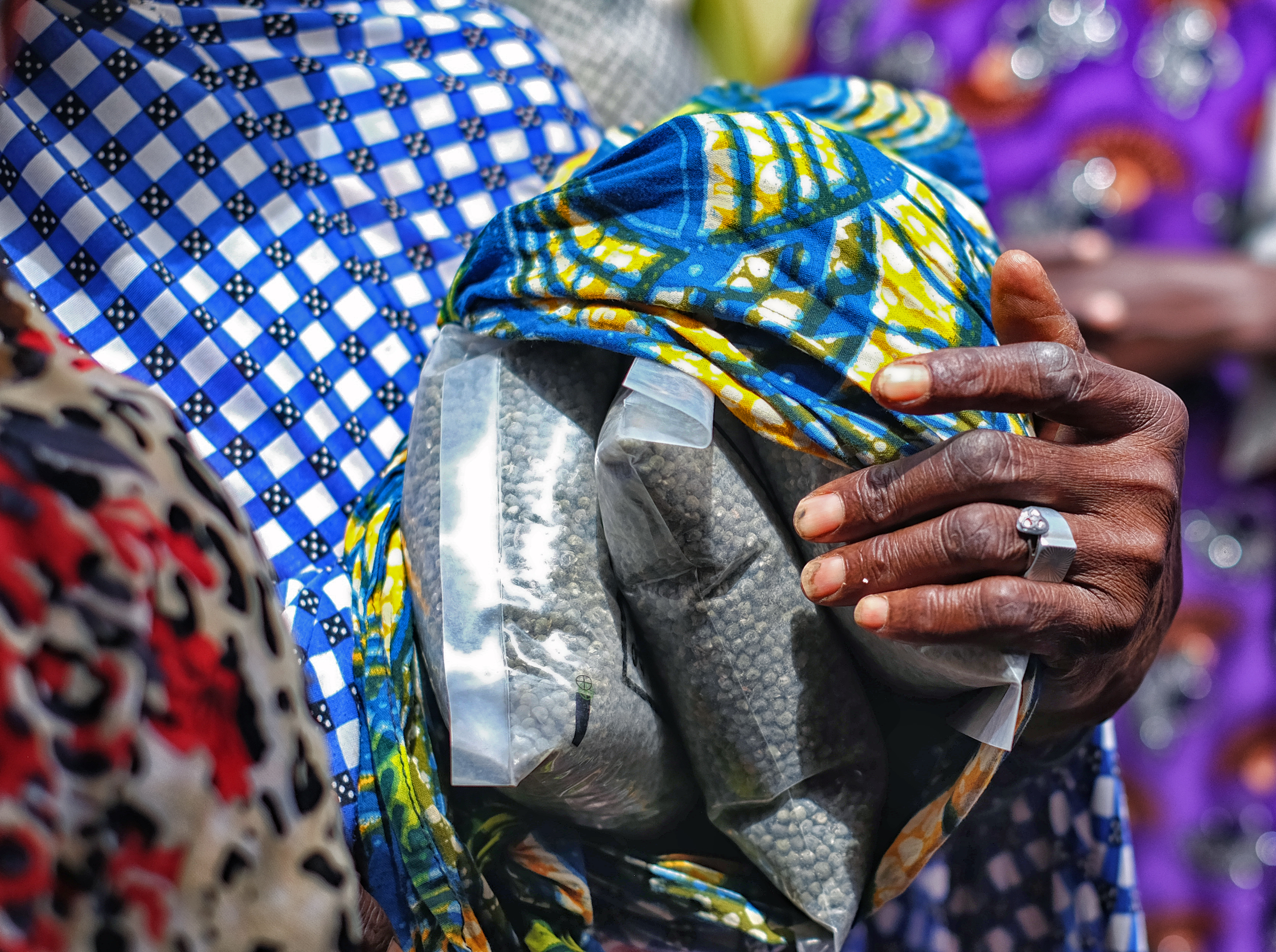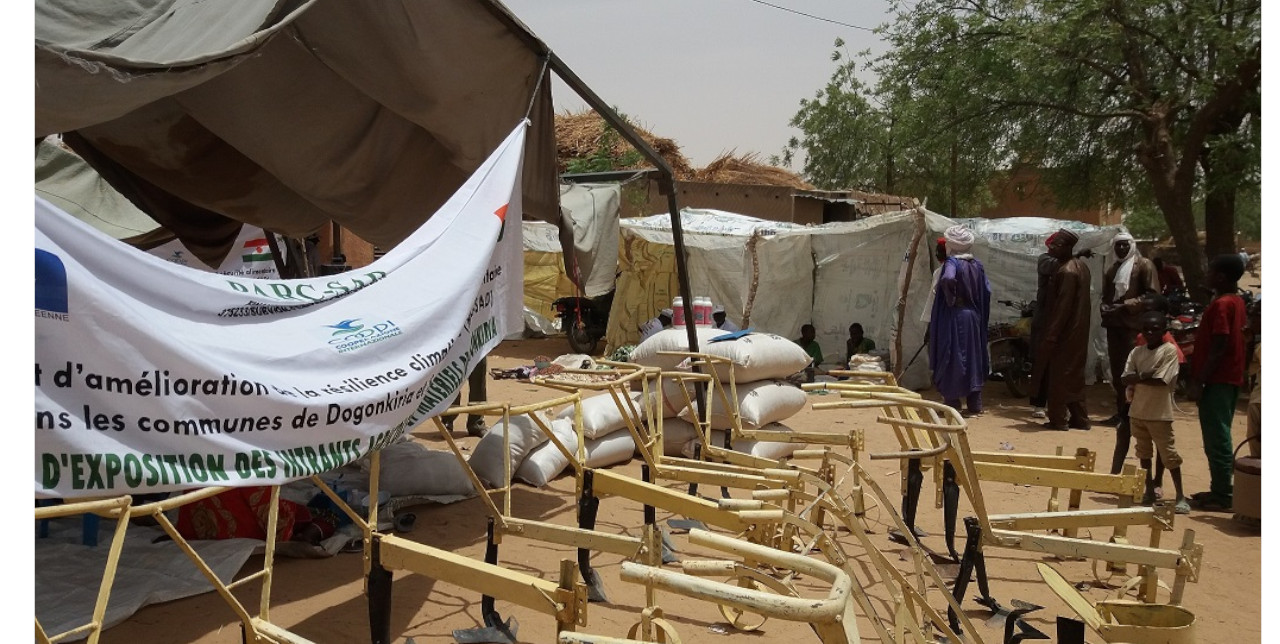11-04-2019 | di COOPI
Niger: improved seeds to adapt to climate change
Four agricultural fairs have been organized in the region of Dosso, in Niger, since the "Improvement of climate resilience and food security of the rural municipalities of Soucoucoutane and Dogonkiria (PARC-SASD)" project, funded by the European Union, was launched in June 2016.
In Niger, most of the population lives in rural areas and agriculture is one of the main sector, which can deliver jobs and growth. However, climate change and frequent droughts are reducing harvesting that are now no longer sustainable to offer the prospect of a dignified life to rural families.
In recent years, more and more men have left their villages to search for seasonal work, thus leaving it up to women to deal with the consequences of climate change, as told by the Italian journalist Giacomo Zandonini in his documentary released for the Swiss radio-tv broadcaster Rsi (the following video is in Italian).
To stop this trend, four agricultural fairs have been organized to promote the use of improved seeds, i.e. seeds that are better suited to cope with climate change (e.g. during periods marked by severe drought) and produce good harvests, even in areas with less favourable climates.

Improved seeds sale at the agricultural fair in the Dosso region.
And the farmers have experienced the astonishing results of these products by first hand: "Last year I tried to sow part of my field with these new seeds and the harvest was very good. This year, I have decided to buy enough seeds to plant them all over my land and so will other families in my village, who were amazed by the quality of the seeds.”
During the project, one of our priorities was to make seeds available locally, by creating 6 shops supplying agricultural products (Boutiques d'Intrants Agricoles - B.I.A.), which have specialized in the sale of these food items. This activity, which was launched from the very beginning of the project, allowed us to create jobs and to give the population the tools needed to cope with climate change.




 Niger
Niger